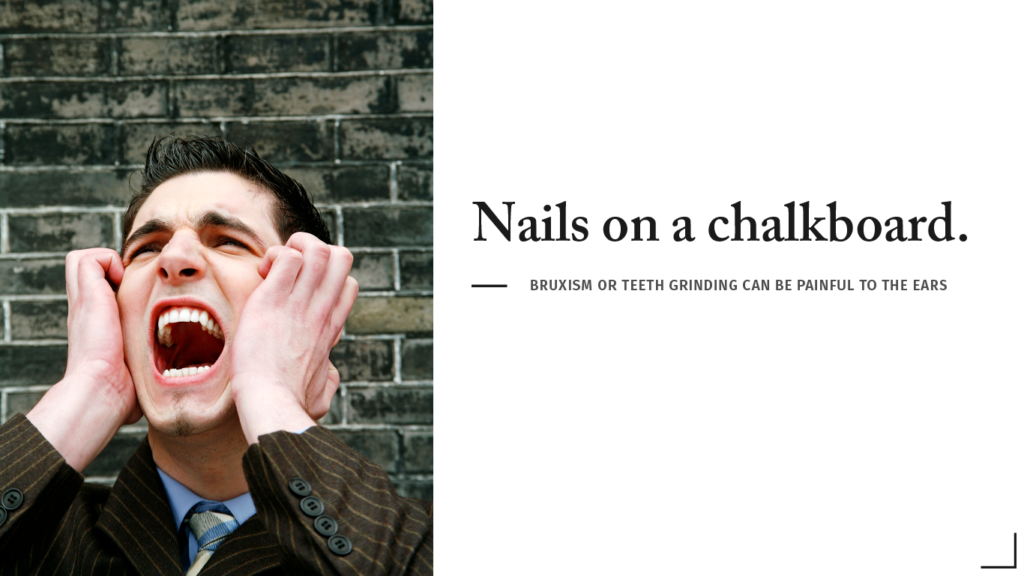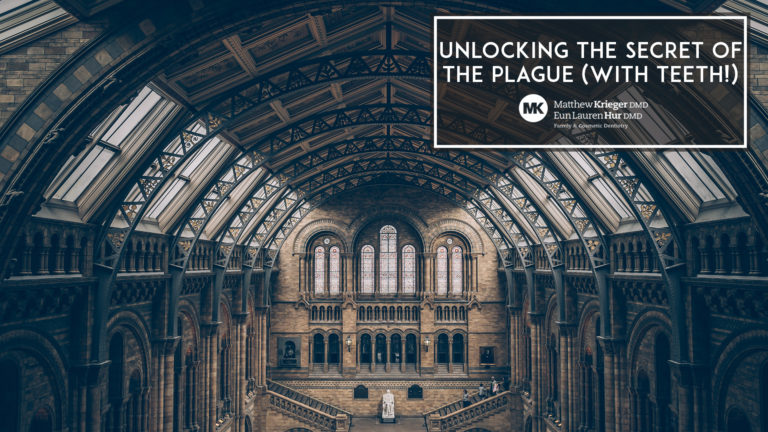The only pain associated with a deafening sound of grinding teeth tends to be to the eardrum. Also known as Bruxism, it’s not typical to have any symptoms or issues other than being irritating at night. Over the course of time, regular and persistent teeth grinding creates discomfort in your jaw muscles. In due time, your pearly whites will become not so pearly little stumps from unnecessary wear. Bruxism can also be the cause of your headaches and earaches.

While the majority of teeth grinding happen during sleep, around 20% happens while awake. Stress and anxiety play a role here, although you’re usually more aware of daytime grinding. Bruxism, while awake, can be as simple as clenching your teeth and jaw. Most of us do this without much thought, during stress-filled situations.
Causes and effects of teeth grinding
Approximately 7 out of 10 cases of bruxism happen when you sleep are often connected to higher stress and anxiety levels. If that doesn’t sound serious enough for you, how about this – teeth grinding and obstructive sleep apnea (OSA) have a connection. OSA is a sleep disorder that can see your brain starved of oxygen from interrupted breathing. Sleep apnea, if left untreated, is detrimental to your health and daily lifestyle.
Learn More » Sleep Apnea and Snoring Treatment
Some medications can also be the cause grinding. Such as an antidepressant known as selective serotonin reuptake inhibitors (SSRIs), tends to result in a higher incidence of bruxism. It might be time to consider a custom night guard to protect your teeth during sleep.
Cutting back on regular consumption of alcohol, quitting smoking, and avoiding the use of recreational drugs will also do your bruxism condition a whole world of good. In fact, following the above and avoiding the mentioned vices might be the “cure” to stop teeth grinding all together.
Bruxism treatment options
At the office of Dr. Krieger and Dr. Hur, we understand sometimes removing the stress-free lifestyle is often way easier said than done. Apart from going through a course of behavioral therapy or indulging in muscle relaxation exercises, you’ll find the use of a custom-fitted mouth guard or bite guard as an effective method of treatment. With a bite guard in place during sleep, the symptoms of bruxism can be better managed. Resulting in a far more relaxed sleep, providing you a good head start for the morning after.
The bite guards referenced here would not be too far removed from those worn by athletes, such as boxers and NFL players. Your bite guard is made from malleable rubber or a special kind of plastic, and fits perfect to your mouth.
The custom fit, crafted from a mold of your mouth caters to the curvature of your teeth and jaw. The bite guard reduces your grinding episodes while acting as a safeguard against any further wear and tear on your teeth.
Ignoring your teeth grinding condition is not a proper solution. It certainly won’t make that astringent noise go away anytime soon.
Call our office so our staff can schedule you for a consultation.


